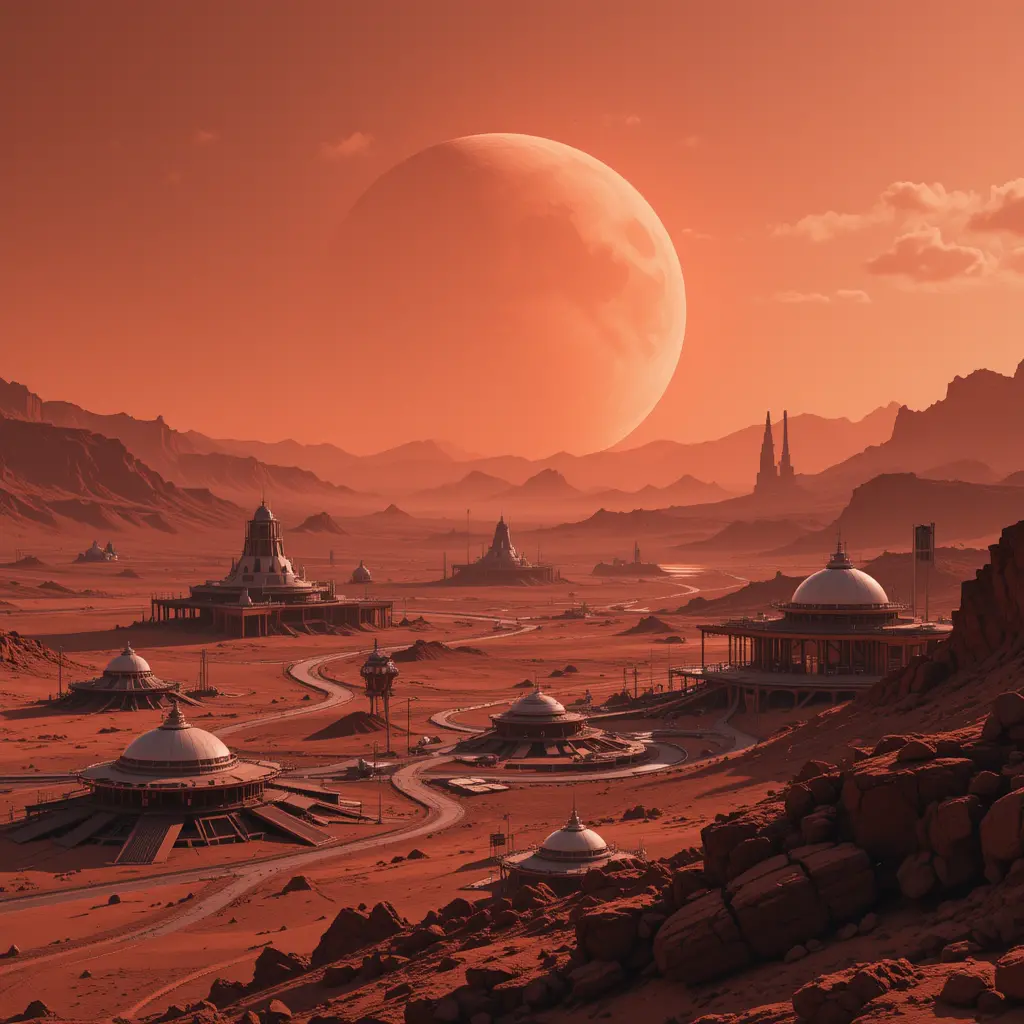Are we truly prepared to take the monumental step of colonizing Mars? As scientists and engineers make strides in space exploration, the possibility of humans living on the Red Planet becomes more tangible. This article examines the current state of technology, the challenges we face, and the potential for establishing a human presence on Mars. Join us as we explore whether humanity is ready to embark on this extraordinary journey.
The Current State of Mars Exploration
Exploring Mars has been a dream for many scientists and enthusiasts alike. The red planet, with its mysterious landscapes and potential for life, captivates our imagination. But how close are we to human colonization? As an astrobiologist, I find this question both thrilling and daunting. The current state of Mars exploration offers a glimpse into our progress and the challenges that lie ahead.
Robotic Missions: Our Eyes on Mars
Robotic missions have been our primary means of exploring Mars. These missions, like the Perseverance Rover, provide invaluable data. They analyze soil samples, search for signs of past life, and help us understand the Martian climate. I remember watching the landing of Perseverance with bated breath, feeling a mix of excitement and anxiety. It was a moment that reminded me of the vastness of space and our small, yet significant, steps towards understanding it.
These robots are our eyes and ears on Mars. They send back images and data that fuel our curiosity and drive our ambitions. However, they also highlight the challenges of human colonization. The harsh environment, with its thin atmosphere and extreme temperatures, poses significant risks. Yet, each mission brings us closer to answering the question: Exploring Mars: How Close Are We to Human Colonization?
Technological Advancements and Challenges
Exploring Mars: How Close Are We to Human Colonization? This question often sparks excitement and curiosity. As an astrobiologist, I find the technological advancements in this field both fascinating and daunting. The journey to Mars is not just about reaching a new planet; it’s about overcoming significant challenges that test our ingenuity and resilience.
Technological Advancements
In recent years, we’ve seen remarkable progress in space technology. The development of reusable rockets, for instance, has drastically reduced the cost of space travel. This innovation is akin to the shift from horse-drawn carriages to automobiles, making space more accessible. Moreover, advancements in life support systems are crucial. These systems must sustain human life in the harsh Martian environment, which is no small feat. I often compare this to creating a self-sustaining ecosystem in a desert, where every resource is precious.
Challenges Ahead
Despite these advancements, challenges remain. Radiation exposure on Mars poses a significant threat to human health. It’s like living in a house with invisible, harmful rays constantly penetrating the walls. Engineers are working on protective habitats, but the solution is not yet perfect. Another challenge is the psychological impact of isolation. Imagine being on a long road trip with no stops and no way to turn back. The mental strain can be immense. As we continue exploring Mars, addressing these challenges is crucial for the success of human colonization.
Potential Benefits and Risks of Colonizing Mars
Exploring Mars: How Close Are We to Human Colonization? This question sparks both excitement and caution. As an astrobiologist, I often ponder the potential benefits and risks of such a monumental step. Mars, with its red dust and mysterious landscapes, offers a new frontier for humanity. But what does it truly mean to colonize another planet?
Potential Benefits
Colonizing Mars could lead to groundbreaking scientific discoveries. Imagine the wealth of knowledge we could gain about the planet’s geology and climate. This could even help us understand Earth’s past and future. Moreover, Mars colonization might serve as a backup for humanity, a safeguard against global catastrophes. The idea of a second home is both thrilling and reassuring.
Risks Involved
However, the risks are significant. The harsh Martian environment poses challenges to human survival. Radiation levels are high, and the atmosphere is thin. These conditions require advanced technology and robust planning. I recall a conversation with a fellow scientist who compared it to living in a submarine, where every resource is precious and limited. The psychological impact of isolation and distance from Earth is another concern. We must weigh these risks carefully.
In my opinion, while the dream of Mars colonization is captivating, we must proceed with caution. The journey to Mars is not just a scientific endeavor; it’s a leap into the unknown. As we explore Mars, we must ask ourselves: How close are we to human colonization, and are we truly ready for it?
Conclusion
As we stand on the brink of a new era in space exploration, the question of whether we are ready for human colonization of Mars looms large. The journey to the Red Planet is not just a scientific endeavor; it is a testament to human curiosity and resilience. But are we truly prepared for such a monumental step?
Challenges and Opportunities
Exploring Mars: How Close Are We to Human Colonization? This question is both thrilling and daunting. The challenges are immense, from the harsh Martian environment to the psychological effects of long-term isolation. Yet, the opportunities for scientific discovery and the potential for a new home for humanity are equally compelling. As an astrobiologist, I often ponder the parallels between this mission and the early explorers who ventured into the unknown seas. They faced uncertainty, yet their discoveries reshaped our world.
In my experience, the excitement of potential discovery often outweighs the fear of the unknown. I recall a conversation with a fellow scientist who likened our Mars ambitions to climbing Mount Everest. The risks are high, but the view from the top is unparalleled. This analogy resonates with me, as it captures the essence of human exploration.
Personal Reflections
Personally, I believe that the drive to explore is intrinsic to our nature. While the technical hurdles are significant, the human spirit is resilient. I remember a time during a field study in a remote desert, where the conditions were harsh and unforgiving. Yet, the sense of achievement and the insights gained were invaluable. This experience mirrors what I imagine Mars colonization would entail—difficult, yet profoundly rewarding.
In conclusion, the path to Mars is fraught with challenges, but the potential rewards are immense. As we continue to explore Mars, we must weigh the risks against the benefits. The journey will not be easy, but the possibility of expanding our horizons is a powerful motivator. Are we ready for human colonization of Mars? Perhaps not yet, but with each step forward, we get closer to making this dream a reality.






